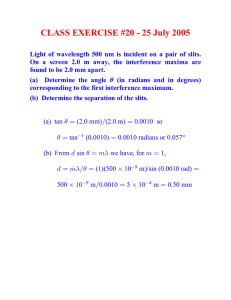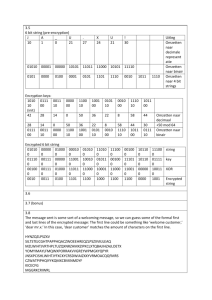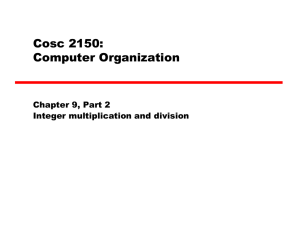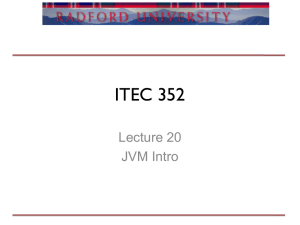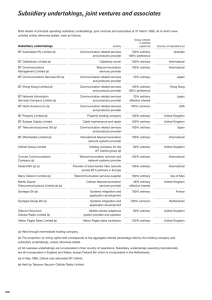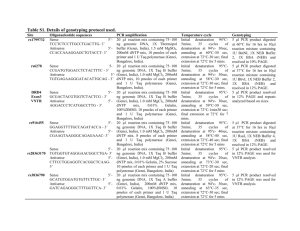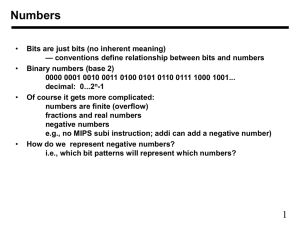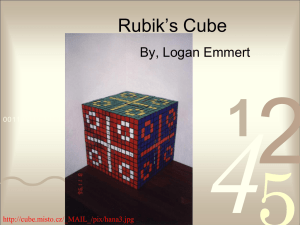The Curious case of Protobufs*
advertisement
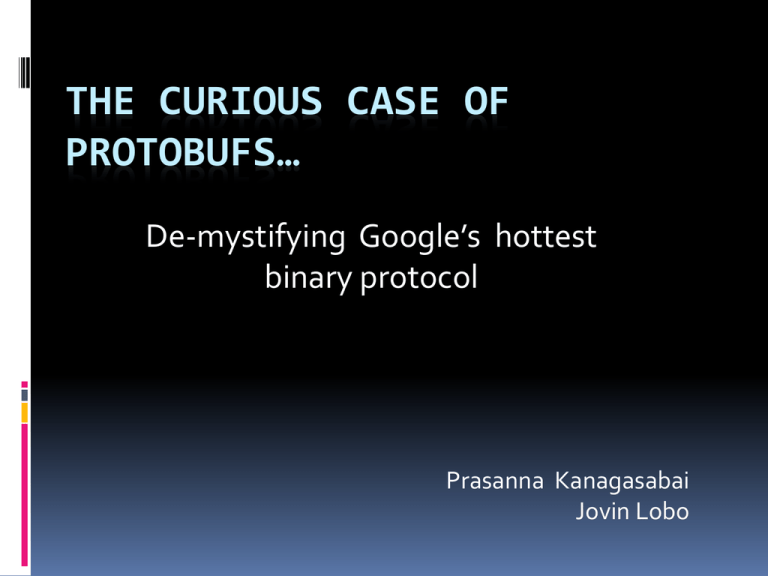
THE CURIOUS CASE OF
PROTOBUFS…
De-mystifying Google’s hottest
binary protocol
Prasanna Kanagasabai
Jovin Lobo
About us :
Prasanna Kanagasabai :
Security Engineer @ ThoughtWorks
Member of null- The Open Security Community .
Author of IronSAP a module over IronWASP.
Speaker @ nullcon-Delhi, Clubhack, IIT Guwahati and various null
meetups.
Jovin Lobo :
Associate Consultant @ Aujas Networks
Member of null- The Open Security Community.
Author of GameOver – Linux distro for learning web security.
Spoken at nullCon, GNUnify before.
Agenda
Introduction.
Anatomy of Protobufs
Defining Message formats in .Proto files.
Protobuf compiler
Python API to read write messages.
Encoding Scheme
Problem Statement.
Decoding like-a-pro with IronWasp ‘Protobuf
Decoder’.
Introduction:
Protocol Buffers a.k.a Protobufs :
Protobufs are Google's own way of serializing
structured data .
Extensible, language-neutral and platformneutral .
Smaller, faster and simpler to implement.
Java, C++ and Python
Anatomy:
Over view :
Defining a .Proto file.
#> less Example.proto
message Conference {
required string conf_name = 1 ;
required int32 no_of_days = 2 ;
optional string email = 3 ;
}
// * 1,2,3 are unique tags. These are used by the
fields in binary encoding.
* For optimization use tags from 1-15 as
higher nos. will use one more byte to encode.
Compiling
Syntax:
protoc –I=$_input_Dir --python_out=$_out_Dir
$_Path_ProtoFile
Eg:
protoc –I=. --python_out=. Example.proto
This will generate a Example_pb2.py file in the
specified destination directory.
$ProtoFile_pb2.py
The Protobuf compiler generates special
descriptors for all your messages, enums, and
fields.
It also generates empty classes, one for each
message type:
Eg:
Reading and writing messages
using the Protobuf binary
format :
SerializeToString()
serializes the message and returns it as a string.
ParseFromString(data)
parses a message from the given string.
Demo: Protobuf… how it wrks
Encoding.
example2.proto
message Ex1 {
required int32 num = 1; // field tag
}
Code snippet:
obj = example2_pb2.Ex1();
obj.num = 290;
// field value
obj.SerializeToString();
Output :
08 A2 02 #hex
000010001010001000000010 #binary
Problem statement.
This is what freaked him out
08 A2 02
000010001010001000000010
Lets Decode it ..
Step 1 :
Find the wire type .
Step 2:
Find the field number.
Step 3:
Find the field tag.
Step1: finding wire type.
0000 1000 1010 0010 0000 0010
To find wire type take the first byte:
0000 1000 1010 0010 0000 0010
[0]000 1000 Drop MSB from First byte.
0001 000 The last 3 bits give wire type.
Wire type is 000
type = 0 is Varint.
Wire types
Step 2: Field tag.
What we already have is 0001000
Now we right shift value by 3 bits and the
remaining bits will give us the field tag.
0001000
0001 000
‘0001 ‘ i.e. ‘ 1’
So we get the field tag = 1
Step 3: Find the field value
0000 1000 1010 0010 0000 0010
We drop the 1st byte
1010 0010 0000 0010
Drop the MSB’s from each of these bytes
1010 0010 0000 0010
010 0010 000 0010
Reverse these bytes to obtain the field value.
000 0010 010 0010
000 0010 010 0010 i.e 256 + 32 + 2 = 290
So we finally get the value of the field = 290.
So we successfully decoded
example2.proto
message Ex1 {
required int32 num = 1;
}
Code snippet:
obj = example2_pb2.Ex1();
obj.num = 290;
obj.SerializeToString();
Output :
08 A2 02 #hex
000010001010001000000010 #binary
We successfully Decoded Value : “290”
Demo : Lets do this live
Automating all this with
IronWasp Protobuf Decoder:
About IronWasp :
IronWasp is an open-source web security scanner.
It is designed to be customizable to the extent
where users can create their own custom security
scanners using it.
Author – Lavakumar Kuppan (@lavakumark)
Website : www.ironwasp.org
ProtoBuf Decoder
Road Map for Protobuf
Decoder
0110100000111101000001011011
1001111001001000000101000101
1101010110010101110011011101
0001101001011011110110111001
1100110010000000111111
0110100000111101000001011011
1001111001001000000101000101
1101010110010101110011011101
0001101001011011110110111001
1100110010000000111111
0110100000111101000001011011
1001111001001000000101000101
1101010110010101110011011101
0001101001011011110110111001
1100110010000000111111
Hmmm … Decoding ……
Done … It says ……
Any Questions ?
Done … It says ……
Any Questions ?
Thank You
